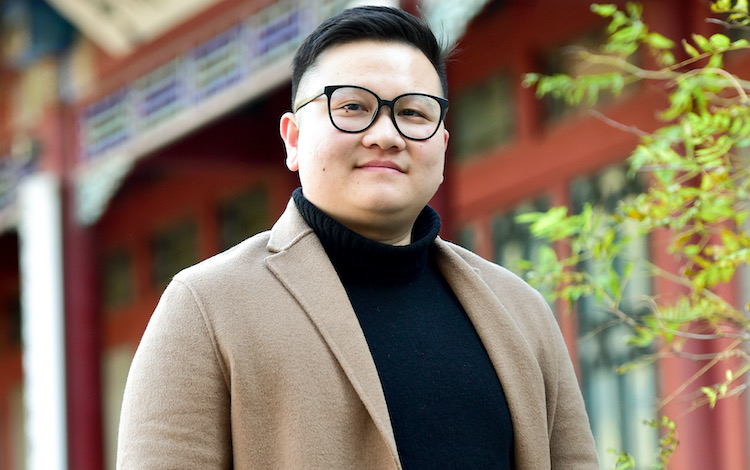
Growing up in New Zealand, Johnny worked for almost nine years in marketing and sales for a building materials firm before joining the Tsinghua MBA. President of the MBA class, he wants to reach senior management positions post-MBA and use his new-found China knowledge as his USP.
Why did you decide to pursue an MBA at Tsinghua University?
After years of working for the same company in New Zealand, I thought it was time to take a break and further my career options. I was responsible for the Asia region, so I would spend around six months a year in China and Asia. Being originally from China, and working in China, an MBA in China made sense.
Tsinghua University was my only choice. My father actually went to Tsinghua. He graduated in 1985, but he’s still close with his Tsinghua network. Growing up with my dad as a Tsinghua alum, I met his classmates and attended anniversary events, and that left a deep impression on me. You could really feel the camaraderie of the Tsinghua alumni network, where everybody supports each other no matter what.
What do you think Tsinghua University looks for in MBA candidates?
Tsinghua is not just looking for the typical corporate guy. They want people from different backgrounds, with different personalities and life experiences.
Probably half my class is from a finance background, but we’ve also got entrepreneurs, people who’ve worked for startups, and people from the music industry, fashion, and agriculture—it’s a diverse group.
What stands out from your Tsinghua MBA experience so far?
Again, it’s the people. After just a couple of weeks, I saw just how welcoming the class was and I was really glad I came here. I think the connections I’ve made with my classmates are something I’m going to benefit from for the rest of my life.
I’m also looking forward to going to Yale University for an exchange next semester. I’ve never experienced education in the United States before so that’s another chance to meet amazing people and have a different life experience in the US.
What’s your favorite Tsinghua MBA class?
Professor Qian Xiaojun’s business ethics class opened my mind to the role ethics plays both in management decisions and in deciding what kind of manager you want to be. We did lots of case studies and had lively discussions that really got me thinking.
She also taught us management communications. Everyone knows how communication is super-important in an organization, but we don’t realize how the little things you say or do can have a profound impact on how your manager or colleagues see you. I think I’ve learned to be a bit more sensitive in my communications and do things differently than I might have done before.

How will the Tsinghua MBA help you achieve your career goals?
I want to stay in the same field and work for a multinational company that wants to come into China, or help a Chinese company looking to expand in Southeast Asia or Oceania.
I’m talking to Tsinghua alumni who have been in my field for 15 to 20 years to understand the lay of the land in China and where the industry is going. Because I’m a Tsinghua student, they’re more willing to share and help me.
A lot of my classmates are looking to change careers completely. They’ve already started to engage with the Career Development Center and secure internships so they can build the experience they need to make a switch when they finish the MBA.
One of the early deans of Tsinghua SEM became one of China’s leading politicians. Zhu Rongji served as premier of the People's Republic of China from 1998 to 2003!
By Marco De Novellis